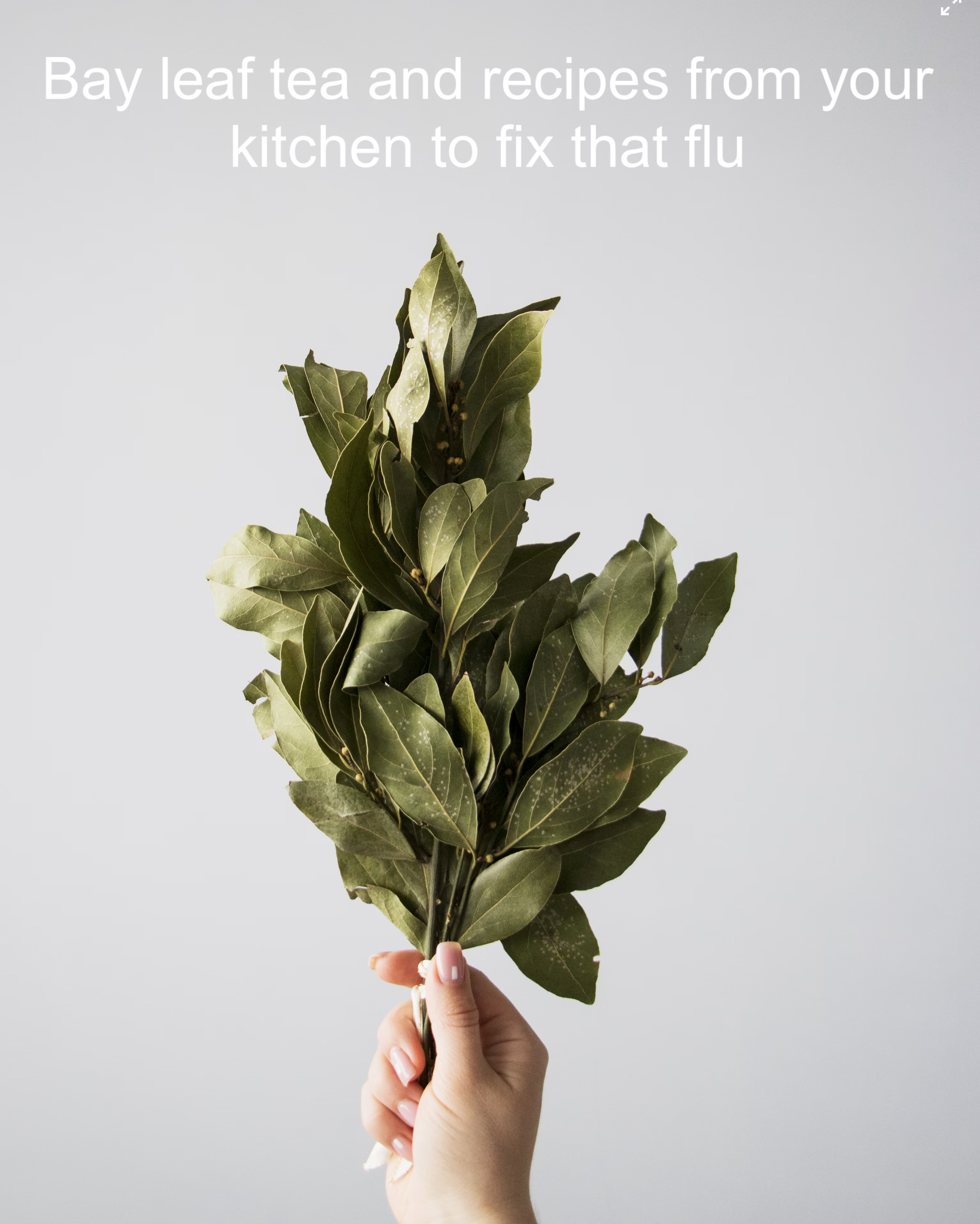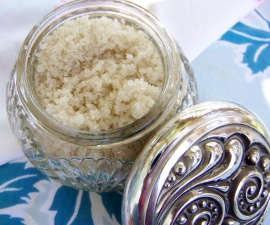Once you’re down with flu, all the standard advice applies: rest, stay warm, drink lots of warm fluids, take something to relieve the symptoms. And have patience. With care and about a week, the bug will fade away.
Before you reach for the usual pain-killers and fever reducers, inspect your spice cupboard. I’ll bet at least a few natural helpers are lurking there. Read more about medicinal spices in our Middle-Eastern Spices and Medicine Guide. Bay leafs, peppercorns and sage will come to the rescue.
Chills. If you’re shivering with chills, try bay leaf tea to warm the body and encourage sweating. Break up a couple of leaves and steep them in hot water for 10 minutes, covered. Stir in a teaspoon of honey and drink. The taste is mild and pleasantly spicy, and the effect warming and comforting. My mother use to make this tea for me when I was a teenager suffering menstrual cramps. It helped, because bay leaf tea encourages blood circulation.

Hoarseness. Losing your voice? Grind 6 or 7 black peppercorns up – you can crush them in a metal or plastic bowl, with the bottom of a bottle. Cover the crushed peppercorns with honey and swallow it all down. The mixture opens up the throat and chest.

Mouth sores and sore throat. Sage infusion is a reliable germ-killer that has an affinity for the mucus membranes. Make a healing gargle with the silvery-green leaves. Steep a teaspoon of finely chopped sage leaves in boiling water, covered. Cool the infusion and gargle with it twice; then repeat twice more over the next 12 hours.
Mucus dripping into the throat while you’re sick is often the cause of infection. Blow your nose often, and gargle with sage the minute you feel that scratch in your throat.
Warning:
Sage has mild hormonal and drying properties. Pregnant and nursing women shouldn’t drink sage tea, nor eat food cooked with large amounts of it. Children, especially girls, should gargle with it, but not attempt to drink it. They won’t want to anyway; sage tea is bitter.

Headache. A cup or two of rosemary tea soothes the tired, achey head, due to its high calcium content. Make an infusion the same way as with bay leaves; steeped in hot water for 10 minutes. Sweeten to taste. Rosemary also clears brain fog for a while.
Pregnant women should avoid rosemary, as it tends to “clean out” the body. But nursing women can benefit from its high calcium content: one-half cup twice daily for no longer than three days.

Keep the vitamin C up with lovely mint tea. My Moroccan friends give their kids mint tea year round, and claim their kids never get runny noses. Drink it hot or cool, made with fresh leaves or dried. Sweeten to taste.
Loss of appetite. Sometimes a sick person just can’t face food. In that case, it’s crucial to stay hydrated with warm teas. Chamomile, being anti-inflammatory and especially soothing, is a great choice. Sweeten to taste and drink freely.
And remember the mystical healing properties of good soup. Chicken or miso soup are light and nutritious. If you’re not up to making your own, ask a friend to fix it.

A winter salad for flu-ey people: Peel an orange and slice it thinly. Layer the slices with fresh mint leaves and if available, sliced tomatoes. Drizzle olive oil and lemon juice over the dish, sprinkling a little salt over all. Or use your favorite salad dressing. The orange, green, and red colors are a delight to the eyes and wake up even a waning appetite. Your body will enjoy a huge hit of vitamin C.
This post doesn’t replace professional medical advice. Consult a doctor if the symptoms are unusually strong or prolonged, or if there’s high fever.






